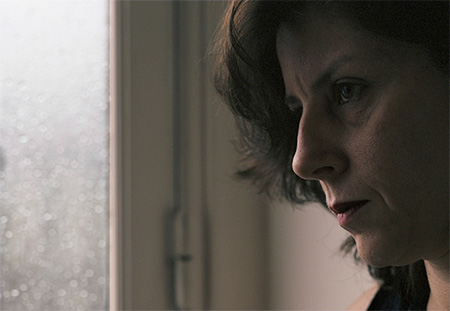Educated at the undergraduate and graduate level at the Institut d’Etudes Politiques (IEP) in Paris, Sylvie Lindeperg was awarded a PhD in history and subsequently became a lecturer at the University of Southampton. In 2000, she was appointed as lecturer at the Sorbonne Nouvelle; since 2008, she has occupied the Chair in Film History at the University of Panthéon-Sorbonne.
She has been a guest professor at a number of universities abroad: Middlebury College, Vermont; Freie Universitat Berlin; Masaryk University in Brno, Czech Republic; film faculty of the University of Arts in Jakarta, Indonesia; the Federal University of Sao Paulo ; New York University.
Lindeperg has written and edited about fifteen books. She is the author of Les Écrans de l’ombre. La Seconde Guerre mondiale dans le cinéma français (1997 and 2014), Clio de 5 à 7 . Les actualités filmées de la Libération : archives du futur (2000),
Nuit et Brouillard. Un film dans l’histoire (2007), Univers concentrationnaire et génocide. Voir, savoir, comprendre, in collaboration with Annette Wieviorka (2008), La Voie des images (2013), À qui appartiennent les images ? avec Ania Szczepanska (2017) and Nuremberg. La Bataille des images (2021).
Lindeperg has served as the joint scientific director of several multimedia publications, including Images de guerre (INA/Nouveau monde édition)
and the author of several documentary films.
Hers books have been translated into several languages and her articles have been published in British, American, Spanish, Italian, German, Portuguese, Argentinian, Chilean, Czech, Chinese, Arabic and Brazilian journals.
Nuit et Brouillard. Un film dans l’histoire was the inspiration for Jean-Louis Comolli’s film Face aux fantômes in 2008; it was adapted for the stage by Nalini Menamkat and performed at the Comédie de Genève (Olga, un regard, 2012).
Her books Les Ecrans de l’ombre et La Voie des images were the inspiration for Ginette Lavigne’s film, Traces filmées de la Résistance in 2015.
In 2013, together with Myriam Tsikounas, she curated the exhibition “René Allio: from Marseille to the Great Gallery”, at the Great Gallery of the Museum of Natural History in Paris.
Sylvie Lindeperg was awarded the Institut Jean Vigo’s Jean Mitry Prize for her book Les Écrans de l’ombre ; the Prix de la Critique Cinématographique and the Italian Limina Prize for Nuit et Brouillard, Un film dans l’histoire ; and, also in Italy, the Maurizio Grande Prize for La Voie des images. For Nuremberg, la bataille des images, she was awarded the Malesherbes Prize from the Association Française pour l’Histoire de la Justice , the Book Prize from the CNC (the National Center for Cinematography) and the special mention of the François Billetdoux’s Prize from the SCAM (the Civil Society of Multimedia Authors).
She runs the CERHEC (the centre for research in film history and aesthetics) at the University of Paris 1
She is the scientific director of the european research programme « Visual Culture of Trauma, Obliteration and Recontruction in Post-WWII Europe (VICTOR-E) ». She co-founded the research group “Théâtres de la Mémoire” with Christa Blümlinger, Michèle Lagny and Sylvie Rollet.
© photo : David Mozziconacci



